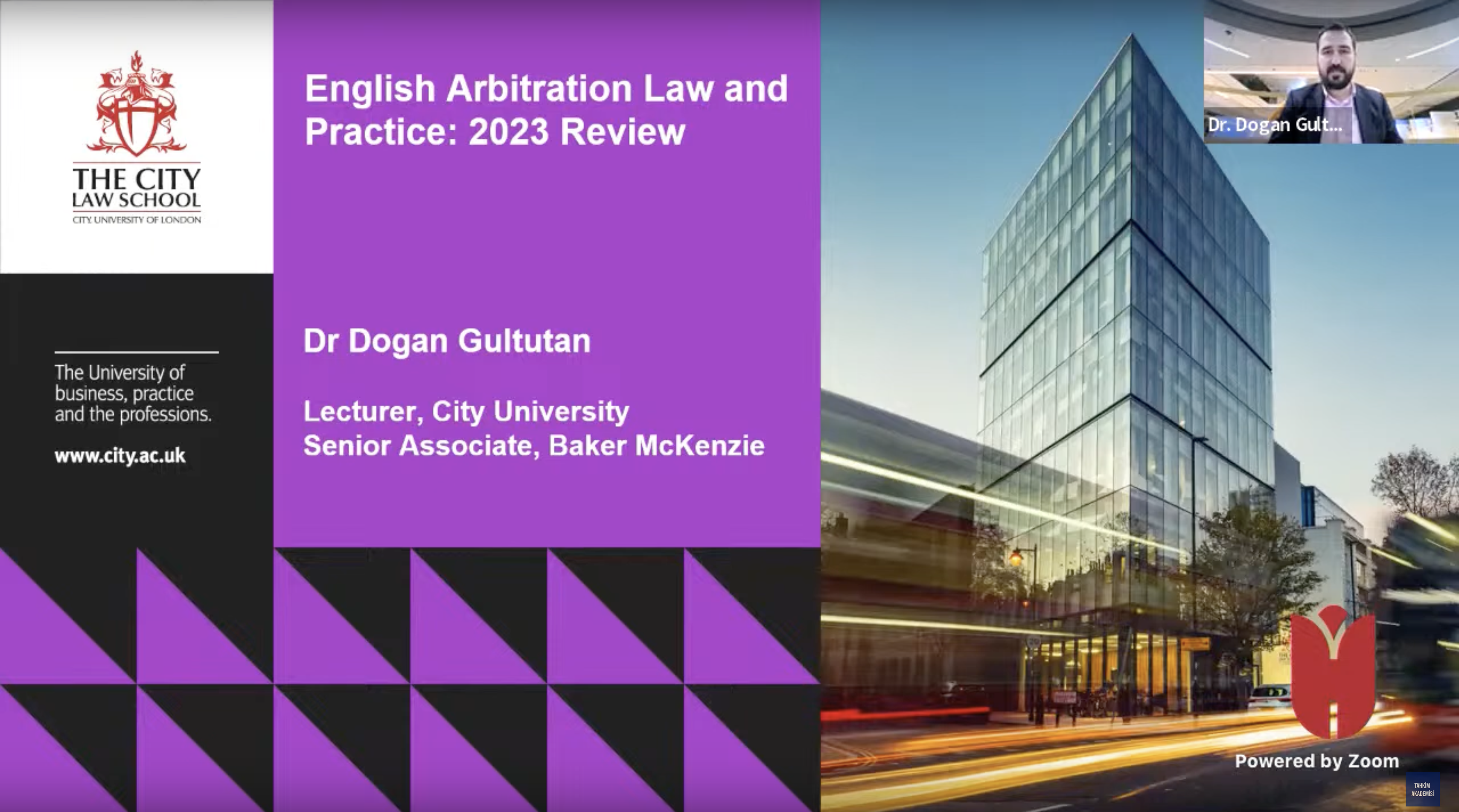
In a webinar jointly organised by Ibn Haldun UÇAM and the Turkish Arbitration Academy, Dr. Doğan Gültutan from Baker Mckenzie and City University provided a comprehensive overview of the major developments in English Arbitration Law and Practice in 2023. In the online seminar moderated by Prof. Ali Yeşilırmak, Dr. Gültutan explained the planned reform bill regarding arbitration in the UK and shed light on important judicial decisions.
Key reforms addressed by Dr. Gültutan:
- Confirmation of Powers of Emergency Arbitrators: The bill aligns the powers of emergency arbitrators with those of regular arbitrators, acknowledging the role of emergency arbitrators in deciding urgent applications before the tribunal is fully constituted. This is a significant update given the original Act predates the common use of emergency arbitration procedures.
- Widening of Arbitrator Immunity from Costs Liability: To protect arbitrators from the fear of being sued for actions performed in their official capacity, the bill extends immunity to situations involving their resignation or removal, barring instances of bad faith or unreasonable resignation.
- Clarification of Power to Make Orders in Support of Arbitral Proceedings Against Third Parties: It clarifies the court's ability to issue interim orders in support of arbitral proceedings, such as evidence preservation and injunctions, against third parties, not just arbitration participants.
- No Full Rehearing for Challenges on Jurisdictional Grounds: The bill restricts the scope for full rehearings on jurisdictional challenges if the tribunal has already ruled on the matter, unless a rehearing is necessary in the interest of justice. This amendment is aimed at streamlining the challenge process under Section 67 of the Act.
The Webinar concluded with a Q&A session.
The event can be replayed here.
Last Update: 02/04/2024 15:42

